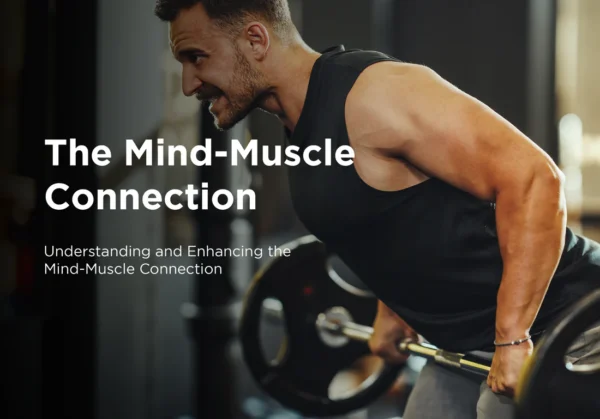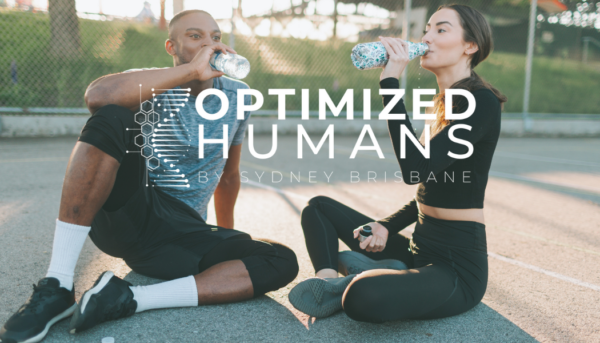
As the summer sun blazes, your workouts might feel more intense, and your body will undoubtedly work harder. Proper post-workout recovery becomes even more crucial during hot weather to ensure your body recovers efficiently and remains injury-free. The Optimized Humans program offers expert advice and resources to help you optimize your recovery. Here are the best practices for post-workout recovery in hot weather, including stretching routines and nutrition tips available in our program.
Hydration is Key
One of the most important aspects of recovery, especially in hot weather, is staying hydrated. Your body loses more fluids through sweat, so replenishing these is essential.
1. Rehydrate Immediately: Drink plenty of water immediately after your workout. Aim for at least 16-24 ounces of water within the first 30 minutes post-exercise.
2. Electrolyte Balance: Consuming drinks with electrolytes can help replenish lost salts and minerals. Consider coconut water or specially formulated electrolyte drinks.
3. Monitor Your Hydration: Check the color of your urine; a pale yellow indicates proper hydration, while darker urine suggests you need to drink more fluids.
Effective Cooling Down
Cooling down helps bring your heart rate back to normal and prevents muscle stiffness. The Optimized Humans program offers guided cool-down routines to ensure you recover properly.
1. Gradual Cool-Down: Spend at least 5-10 minutes walking or performing low-intensity movements to gradually reduce your heart rate.
2. Static Stretching: Incorporate static stretches targeting the major muscle groups you worked during your exercise. Hold each stretch for 20-30 seconds to improve flexibility and reduce muscle tension.
3. Deep Breathing: Practice deep breathing exercises to promote relaxation and aid in the recovery process. This helps lower your heart rate and can reduce post-workout stress.
Stretching Routines for Optimal Recovery
Stretching is a crucial part of the recovery process, especially after intense workouts in hot weather. The Optimized Humans app includes comprehensive stretching routines designed to enhance recovery.
1. Full-Body Stretch Routine: Focus on a full-body stretching routine that targets all major muscle groups. This can help improve flexibility, reduce muscle soreness, and prevent injuries.
2. Yoga and Mobility Work: Incorporate yoga and mobility exercises to enhance your recovery. These practices help improve joint mobility, reduce muscle stiffness, and promote relaxation.
3. Foam Rolling: Use a foam roller to release muscle tension and improve blood flow to your muscles. The app provides guided foam rolling exercises for different muscle groups.
Nutrition for Recovery
What you eat after your workout plays a significant role in your recovery. The Optimized Humans program offers personalized nutrition plans to help you refuel and repair your body.
1. Protein Intake: Consume a protein-rich snack or meal within 30-60 minutes post-workout to support muscle repair and growth. Options include protein shakes, Greek yogurt, or a turkey sandwich.
2. Carbohydrates for Energy: Pair your protein with carbohydrates to replenish glycogen stores and provide energy for recovery. Good options include fruits, whole grains, and vegetables.
3. Healthy Fats: Include healthy fats in your post-workout meal to support overall recovery and reduce inflammation. Avocados, nuts, and olive oil are excellent choices.
4. Antioxidant-Rich Foods: Consume foods rich in antioxidants to combat oxidative stress caused by intense exercise. Berries, leafy greens, and nuts are great options.
Rest and Sleep
Adequate rest and quality sleep are essential for optimal recovery. The Optimized Humans program provides tips and techniques to improve your sleep hygiene.
1. Prioritize Sleep: Aim for 7-9 hours of sleep each night to allow your body to recover fully. Sleep is when your body repairs muscles, consolidates memory, and releases growth hormones.
2. Create a Relaxing Environment: Ensure your sleep environment is cool, dark, and quiet. Consider using blackout curtains, earplugs, or a white noise machine to enhance sleep quality.
3. Consistent Sleep Schedule: Maintain a consistent sleep schedule by going to bed and waking up at the same time each day, even on weekends.
Conclusion
Recovering properly after workouts, especially in hot weather, is essential to maintain your fitness progress and overall well-being. By following these best practices for hydration, cooling down, stretching, nutrition, and rest, you can optimize your recovery and continue to perform at your best. The Optimized Humans program is here to support you with personalized recovery plans, expert advice, and comprehensive resources. Embrace these recovery techniques to stay healthy, energized, and ready for your next workout, no matter how high the temperature rises.
Exclusive Deal For You!
Unlock your potential with a complimentary 14-day trial of our #OptimizedHumans program! 🚀 Dive into customized workouts, expert guidance, and transformative resources designed to enhance your physical and mental well-being. 💪 Join hands with Sydney and our dedicated team to embark on a personalized fitness journey tailored just for you. Together, we’ll optimize your health and set you on the path to success. Plus, discover how we collaborate with companies to boost employee efficiency through tailored workout and nutrition plans. Don’t wait any longer—start your journey to optimal living today at optimizedhumans.life!

We are in the third week battling against Alzheimer’s and cognitive decline takes center stage. In this month dedicated to raising awareness, let’s explore how we can harness the power of mind over matter to combat these formidable adversaries. Join us as we dive into effective strategies to preserve cognitive function and champion brain health.
Navigating Alzheimer’s:
Alzheimer’s disease poses a significant challenge to individuals and communities worldwide. However, armed with knowledge and determination, we can navigate this journey with resilience. Explore treatment options such as cognitive enhancers and lifestyle interventions to manage symptoms and enhance quality of life. Additionally, participate in clinical trials to contribute to the advancement of Alzheimer’s research and potential breakthroughs.
Fueling Brain Resilience:
Just as a car needs fuel to run smoothly, our brains require nourishment to function optimally. Adopt a brain-healthy diet rich in nutrients like antioxidants, omega-3 fatty acids, and vitamins B and D. Incorporate foods such as fatty fish, leafy greens, nuts, and berries to support cognitive resilience and protect against age-related cognitive decline.
Empowering Early Detection:
Early detection is critical in the fight against Alzheimer’s and cognitive decline. Embrace the power of blood tests to identify biomarkers associated with brain health and cognitive function. Routine screenings for cholesterol, glucose, and inflammation levels can provide valuable insights and prompt proactive interventions to mitigate risk factors and promote brain resilience.
Insights from Genetic Profiling:
Genetic profiling offers personalized insights into individual susceptibility to Alzheimer’s disease and cognitive decline. By understanding genetic risk factors, individuals can implement targeted interventions to optimize brain health and reduce the likelihood of developing cognitive impairments. Explore lifestyle modifications, including regular exercise, stress management, and cognitive stimulation, to bolster brain resilience and support overall well-being.
Conclusion:
As we embark on June’s battle against Alzheimer’s and cognitive decline, let’s remember that mind over matter can be a powerful force for change. By navigating Alzheimer’s with resilience, fueling brain resilience with a nutrient-rich diet, empowering early detection through blood tests, and gaining insights from genetic profiling, we can tilt the odds in favor of cognitive vitality. Together, let’s embrace the challenge and pave the way for a future where cognitive health flourishes.
Stay tuned for our last actionable insights and tips throughout Alzheimer’s and Brain Awareness Month!
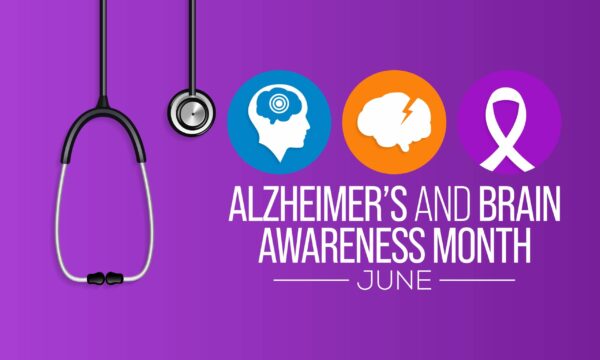
In the midst of June’s fervor for Alzheimer’s awareness, it’s time to recognize that memory matters. This month serves as a rallying cry to join the movement for brain health and take proactive steps to safeguard cognitive function. Let’s delve into practical strategies to champion brain health and honor the importance of memory in our lives.
Prioritizing Brain Health:
Maintaining brain health is crucial for preserving cognitive function and warding off conditions like Alzheimer’s disease. Engage in activities that stimulate the mind, such as puzzles, reading, and learning new skills. Physical exercise is also essential, as it enhances blood flow to the brain and promotes the growth of new brain cells. Make regular exercise a cornerstone of your routine to support long-term brain health.
Nutritional Support for the Brain:
Nutrition plays a pivotal role in brain health. Adopt a brain-boosting diet rich in fruits, vegetables, whole grains, and lean proteins. Incorporate foods high in antioxidants, such as berries, nuts, and leafy greens, to combat oxidative stress and protect brain cells from damage. Additionally, consider supplements like vitamin D and magnesium, which have been linked to improved cognitive function and mood regulation.
Harnessing the Power of Blood Tests:
Blood tests offer a window into our brain health, providing valuable insights for early detection and intervention. Routine blood screenings can assess cholesterol levels, blood sugar levels, and inflammatory markers, which impact brain health. Monitoring these biomarkers allows for timely intervention to mitigate risk factors and optimize brain function.
Insights from Genetic Testing:
Genetic testing empowers individuals to understand their unique risk factors for Alzheimer’s disease. By identifying genetic predispositions early on, individuals can implement personalized strategies to reduce risk and promote brain health. Embrace lifestyle modifications such as maintaining a healthy weight, managing stress, and prioritizing quality sleep to support overall well-being and cognitive vitality.
Conclusion:
As we navigate Alzheimer’s Awareness Month, let’s reaffirm that memory matters. By prioritizing brain health, embracing nutritional support, harnessing the power of blood tests, and gaining insights from genetic testing, we can champion cognitive vitality and honor the importance of memory in our lives. Together, let’s join the movement for brain health and pave the way for a brighter, more resilient future.
Stay tuned for more actionable insights and tips throughout Alzheimer’s and Brain Awareness Month!
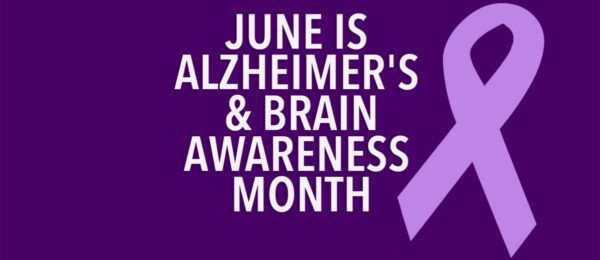
Welcome to June, the month dedicated to unlocking minds and fighting against Alzheimer’s and brain fog. As we delve into this crucial awareness campaign, let’s explore effective strategies to combat Alzheimer’s, enhance brain health, and reclaim our cognitive vitality.
Tackling Alzheimer’s:
Alzheimer’s disease poses a significant challenge to individuals and families worldwide. However, advancements in treatments offer hope. From pharmaceutical interventions to lifestyle modifications, there’s a range of approaches to explore. Consult with healthcare professionals to explore options like acetylcholinesterase inhibitors or memantine, which can help manage symptoms and slow disease progression.
Harnessing the Power of Vitamins:
Vitamins play a crucial role in brain health. Incorporating nutrient-rich foods and supplements can provide essential support. Vitamin E, for instance, acts as an antioxidant, protecting brain cells from damage. Omega-3 fatty acids, found in fish oil supplements, promote brain function and may reduce the risk of cognitive decline. Ensure you’re getting an adequate intake of vitamins B6, B12, and folate, as deficiencies have been linked to cognitive impairment.
Blood Tests for Early Detection:
Early detection of Alzheimer’s is key to effective management. Blood tests are emerging as promising tools for diagnosing Alzheimer’s disease, offering a non-invasive and cost-effective alternative to traditional methods. Biomarkers such as amyloid beta and tau proteins can indicate the presence of Alzheimer’s pathology years before symptoms manifest. Speak with your healthcare provider about incorporating these tests into your wellness routine for proactive monitoring.
Unlocking Genetic Insights:
Genetic predisposition plays a role in Alzheimer’s risk. DNA tests, such as genetic screening for the APOE ε4 allele, can provide valuable insights into individual susceptibility. While genetic factors influence Alzheimer’s risk, they don’t determine destiny. Armed with this knowledge, individuals can adopt lifestyle measures to mitigate risk factors and promote brain health.
This June, let’s unite in the fight against Alzheimer’s and brain fog. By embracing treatments, optimizing vitamin intake, leveraging blood tests for early detection, and unlocking genetic insights, we can empower ourselves in the battle for cognitive vitality. Together, we can unlock minds and pave the way for a brighter, brain-healthy future.
Stay tuned for more insights and actionable tips throughout Alzheimer’s and Brain Awareness Month!

As April dawns upon us, it brings with it a poignant reminder: Stress Awareness Month. In a world where the hustle and bustle often blur the lines between urgency and serenity, it’s essential to pause and reflect on the silent yet significant struggle many of us face daily. Stress has become an unwelcome companion for countless individuals, affecting our mental, emotional, and physical well-being.
In this introductory piece, we embark on a journey to unravel the layers of stress, exploring its roots, manifestations, and impacts in our modern lives. Join me as we delve into the depths of this intricate phenomenon, shedding light on its prevalence and the imperative need to address it with empathy and understanding.
In the weeks to come, we’ll navigate through the labyrinth of stress, equipping ourselves with knowledge and strategies to combat its pervasive influence. Together, let’s embark on a transformative quest toward greater self-awareness and resilience in the face of adversity.
Stay tuned as we embark on this enlightening journey, seeking solace amidst the chaos and fostering a culture of compassion and support. It’s time to unveil the silent struggle and embrace the path to a more balanced and fulfilling life.
Are you ready to embark on this journey with me? Let’s navigate through the nuances of stress, arm ourselves with insights, and emerge stronger, wiser, and more resilient than ever before.
Unveiling the Silent Struggle
As April unfolds, casting its spotlight on Stress Awareness Month, it beckons us to pause and confront a prevalent yet often overlooked challenge: stress in the modern world. In the relentless pursuit of success, fulfillment, and societal expectations, stress has stealthily woven its threads into the fabric of our lives. It’s time to unravel the layers, understand its nuances, and, most importantly, empower ourselves with strategies to navigate this complex terrain.
Ways of Understanding Stress in the Modern World:
- Digital Overload and Constant Connectivity: The digital age has ushered in unprecedented connectivity, but it also brings a relentless barrage of information, notifications, and social comparisons. Our constant engagement with screens and the pressure to stay connected can contribute significantly to stress. Recognizing the impact of our digital interactions is the first step in understanding the modern dynamics of stress.
- Work-Life Integration Challenges: The traditional boundaries between work and personal life have blurred, ushering in the era of work-life integration. While this flexibility offers opportunities, it also poses challenges in establishing clear delineations. Understanding the demands of our multifaceted roles and acknowledging the need for balance is crucial for managing stress in a world that never truly disconnects.
- Social Pressures and Comparison Culture: The pervasive influence of social media has given rise to a culture of constant comparison. The carefully curated highlight reels of others can fuel feelings of inadequacy and intensify the pressure to measure up. Recognizing and challenging these societal expectations is essential for fostering a healthier mindset and mitigating stressors associated with comparison culture.
Positive Ways to Deal with Stress:
- Mindfulness and Meditation: Incorporating mindfulness practices and meditation into our daily routines can be a powerful antidote to stress. Taking time to focus on the present moment, breathe, and cultivate awareness helps break the cycle of anxious thoughts. Apps, guided sessions, or even simple moments of solitude can be transformative in building resilience.
- Establishing Boundaries: In a world where boundaries blur, setting clear limits is crucial. Learning to say no, prioritizing self-care, and carving out dedicated time for relaxation fosters a healthier balance. Establishing boundaries not only protects our well-being but also enhances our ability to navigate the challenges of the modern world.
- Cultivating a Supportive Network: Social connections are a cornerstone of well-being. Cultivating a supportive network of friends, family, or colleagues can provide invaluable emotional support. Sharing experiences, seeking advice, or simply having someone to lean on fosters a sense of community, reducing the isolating impact of stress.
Embarking on this journey to understand and navigate stress in the modern world requires both self-reflection and proactive steps toward positive change. In the coming weeks, we will delve deeper into these aspects, exploring practical strategies and insights to build resilience and embrace a more balanced and fulfilling life.
Are you ready to equip yourself with the tools needed to navigate the complexities of stress in the modern era? Stay tuned as we unravel the silent struggle together and discover pathways to a more empowered and serene existence.
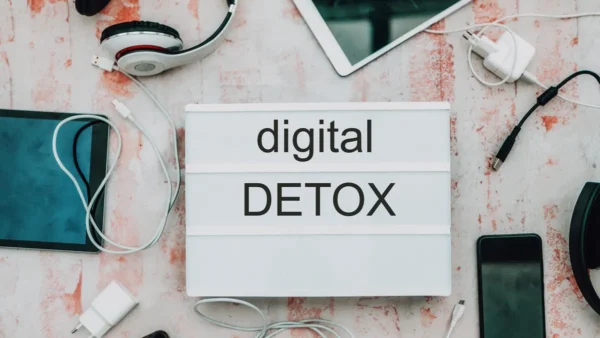
In a world where digital connectivity is both a necessity and a potential source of overwhelm, the concept of a digital detox is undergoing a profound transformation. What was once perceived as an extreme or ostracizing practice is evolving into a mainstream and balanced approach to well-being in 2024. This blog post explores the shifting perceptions surrounding digital detoxes, the driving forces behind this evolution, and why disconnecting from the digital realm is becoming a vital aspect of holistic self-care.
The Digital Dilemma
As our lives become increasingly intertwined with technology, the need for periodic disconnection has never been more apparent. The constant barrage of notifications, social media updates, and digital demands has led to a collective sense of digital fatigue. Recognizing the impact on mental health, relationships, and overall well-being, individuals are seeking reprieve from the digital deluge.
The Stigma of Disconnecting: A Shift in Perception
There was a time when taking a break from digital devices might have been met with skepticism or perceived as an antisocial act. However, the narrative is changing. In 2024, the stigma associated with digital detoxes is dissipating, making room for a more empathetic understanding of the need for balance in our tech-infused lives. Disconnecting is no longer viewed as an act of isolation but as a deliberate and commendable choice for self-care.
The Mental Health Imperative
The pervasive nature of digital connectivity has underscored the importance of safeguarding mental health. Digital detoxes are increasingly recognized as essential for combating digital burnout, reducing stress, and fostering a sense of mental clarity. As mental health takes center stage in societal conversations, the idea of stepping back from digital distractions is gaining legitimacy as a proactive measure for well-being.
Reclaiming Presence: Disconnecting to Connect
The paradox of our hyper-connected age is that, at times, we feel more disconnected than ever. Digital detoxes are emerging as a remedy, offering individuals the opportunity to reclaim presence in their lives. Whether it’s spending quality time with loved ones, engaging in outdoor activities, or simply relishing moments of solitude, disconnecting from the digital realm allows for a more authentic and meaningful connection with the world around us.
Balancing the Digital Diet: A Holistic Approach
The evolving perspective on digital detoxes is rooted in the recognition that balance is key. Rather than an all-or-nothing approach, individuals are adopting a more nuanced and holistic view of their digital consumption. It’s about curating a healthy digital diet that aligns with individual needs, allowing for intentional use without sacrificing well-being.
A Digital Renaissance
In 2024, the evolution of digital detoxes signifies a broader cultural shift—a renaissance in our relationship with technology. Disconnecting is no longer seen as an extreme measure but as a conscious and empowering choice. As individuals navigate the digital landscape with greater mindfulness, the concept of a digital detox becomes a tool for reestablishing balance, fostering well-being, and reclaiming a sense of agency over our digital lives. In the pursuit of a harmonious coexistence with technology, the digital detox has found its place not as an outlier but as an integral component of a holistic and mindful approach to modern living.
In the ever-evolving landscape of fitness, a paradigm shift is underway—one that blurs the lines between mind and body, challenging the traditional dichotomy of physical and mental well-being. Enter the era of hybrid workouts, a revolutionary concept that integrates strength, flexibility, and mindfulness. In this blog post, we delve into the essence of hybrid workouts and how platforms like Optimized Humans are championing this integrated approach to elevate the fitness experience.
The Hybrid Workout Revolution
Hybrid workouts represent a departure from the singular focus of traditional exercise regimens. No longer confined to a narrow category, these workouts seamlessly blend elements of strength training, cardiovascular exercises, and mindfulness practices. The result is a comprehensive and holistic approach that addresses both the physical and mental aspects of well-being.
Optimized Humans: Elevating the Hybrid Experience
Platforms like Optimized Humans are at the forefront of this fitness evolution, recognizing that true well-being extends beyond the physical realm. By curating hybrid workout programs, these platforms seamlessly integrate strength-building exercises with mindfulness practices such as meditation and yoga. The goal is not just to sculpt the body but to cultivate a harmonious connection between mind and muscle.
Mindfulness Meets Movement
Hybrid workouts leverage the power of mindfulness to enhance the overall fitness experience. Incorporating elements like meditation and yoga into strength training sessions fosters a mind-body synergy. It’s not just about completing sets and reps; it’s about being present in each movement, cultivating awareness of breath, and nurturing mental resilience alongside physical strength.
Adaptable and Inclusive
The beauty of hybrid workouts lies in their adaptability. Whether you’re a seasoned fitness enthusiast or a beginner on the wellness journey, these workouts cater to diverse needs and fitness levels. From high-intensity interval training (HIIT) infused with mindfulness to strength and flexibility sessions, the versatility of hybrid workouts ensures inclusivity and accessibility for all.
The Optimized Humans Approach
Optimized Humans takes the concept of hybrid workouts to the next level by providing a curated and personalized fitness experience. By understanding individual preferences, goals, and even mental well-being metrics, platforms like Optimized Humans craft workouts that go beyond the physical, considering the holistic nature of well-being.
Beyond the Gym: A Lifestyle Shift
Hybrid workouts are not confined to gym sessions; they extend into daily life. The principles of mindfulness, strength, and flexibility learned in these sessions become integral to how individuals navigate stress, make decisions, and approach challenges outside of the workout space. It’s a lifestyle shift that transcends the boundaries of traditional fitness.
The Future of Fitness is Integrated
As we navigate the future of fitness, the integration of mind and body is not just a trend; it’s a transformative shift towards holistic well-being. Hybrid workouts, championed by platforms like Optimized Humans, are at the forefront of this evolution, recognizing that true optimization involves a harmonious connection between mental and physical fitness. The future belongs to those who understand that a truly optimized human is one whose mind and muscles move in tandem—a philosophy that transcends the gym and permeates every aspect of life. Embrace the hybrid revolution, where the pursuit of well-being is no longer a dichotomy but a unified and integrated journey.
